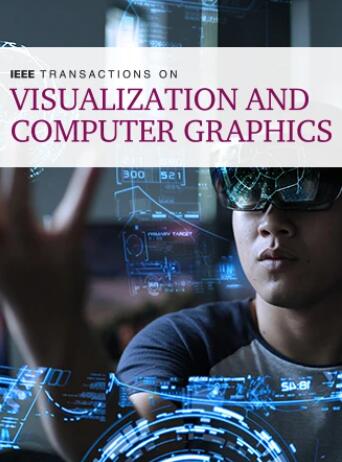GPA-Net: No-Reference Point Cloud Quality Assessment with Multi-task Graph Convolutional Network
IF 4.7
1区 计算机科学
Q1 COMPUTER SCIENCE, SOFTWARE ENGINEERING
IEEE Transactions on Visualization and Computer Graphics
Pub Date : 2022-10-29
DOI:10.48550/arXiv.2210.16478
引用次数: 5
Abstract
With the rapid development of 3D vision, point cloud has become an increasingly popular 3D visual media content. Due to the irregular structure, point cloud has posed novel challenges to the related research, such as compression, transmission, rendering and quality assessment. In these latest researches, point cloud quality assessment (PCQA) has attracted wide attention due to its significant role in guiding practical applications, especially in many cases where the reference point cloud is unavailable. However, current no-reference metrics which based on prevalent deep neural network have apparent disadvantages. For example, to adapt to the irregular structure of point cloud, they require preprocessing such as voxelization and projection that introduce extra distortions, and the applied grid-kernel networks, such as Convolutional Neural Networks, fail to extract effective distortion-related features. Besides, they rarely consider the various distortion patterns and the philosophy that PCQA should exhibit shift, scaling, and rotation invariance. In this paper, we propose a novel no-reference PCQA metric named the Graph convolutional PCQA network (GPA-Net). To extract effective features for PCQA, we propose a new graph convolution kernel, i.e., GPAConv, which attentively captures the perturbation of structure and texture. Then, we propose the multi-task framework consisting of one main task (quality regression) and two auxiliary tasks (distortion type and degree predictions). Finally, we propose a coordinate normalization module to stabilize the results of GPAConv under shift, scale and rotation transformations. Experimental results on two independent databases show that GPA-Net achieves the best performance compared to the state-of-the-art no-reference PCQA metrics, even better than some full-reference metrics in some cases. The code is available at: https://github.com/Slowhander/GPA-Net.git.GPA-Net:基于多任务图卷积网络的无参考点云质量评估
随着三维视觉的快速发展,点云已经成为越来越受欢迎的三维视觉媒体内容。由于点云结构的不规则性,对压缩、传输、渲染和质量评估等相关研究提出了新的挑战。在这些最新研究中,点云质量评估(PCQA)因其在指导实际应用方面的重要作用而受到广泛关注,尤其是在许多没有参考点云的情况下。然而,目前基于流行的深度神经网络的无参考度量存在明显的缺点。例如,为了适应点云的不规则结构,它们需要预处理,如引入额外失真的体素化和投影,而应用的网格核网络,如卷积神经网络,无法提取有效的失真相关特征。此外,他们很少考虑各种失真模式和PCQA应该表现出移位、缩放和旋转不变性的哲学。在本文中,我们提出了一种新的无参考PCQA度量,称为图卷积PCQA网络(GPA-Net)。为了提取PCQA的有效特征,我们提出了一种新的图卷积核,即GPAConv,它可以专注地捕捉结构和纹理的扰动。然后,我们提出了由一个主任务(质量回归)和两个辅助任务(失真类型和程度预测)组成的多任务框架。最后,我们提出了一个坐标归一化模块来稳定GPAConv在移位、缩放和旋转变换下的结果。在两个独立数据库上的实验结果表明,与最先进的无参考PCQA指标相比,GPA-Net实现了最佳性能,在某些情况下甚至优于一些完全参考指标。该代码位于:https://github.com/Slowhander/GPA-Net.git.
本文章由计算机程序翻译,如有差异,请以英文原文为准。
求助全文
约1分钟内获得全文
求助全文
来源期刊

IEEE Transactions on Visualization and Computer Graphics
工程技术-计算机:软件工程
CiteScore
10.40
自引率
19.20%
发文量
946
审稿时长
4.5 months
期刊介绍:
TVCG is a scholarly, archival journal published monthly. Its Editorial Board strives to publish papers that present important research results and state-of-the-art seminal papers in computer graphics, visualization, and virtual reality. Specific topics include, but are not limited to: rendering technologies; geometric modeling and processing; shape analysis; graphics hardware; animation and simulation; perception, interaction and user interfaces; haptics; computational photography; high-dynamic range imaging and display; user studies and evaluation; biomedical visualization; volume visualization and graphics; visual analytics for machine learning; topology-based visualization; visual programming and software visualization; visualization in data science; virtual reality, augmented reality and mixed reality; advanced display technology, (e.g., 3D, immersive and multi-modal displays); applications of computer graphics and visualization.
 求助内容:
求助内容: 应助结果提醒方式:
应助结果提醒方式:


